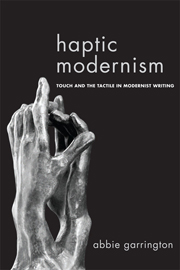Book contents
6 - Horrible Haptics
Published online by Cambridge University Press: 05 September 2013
Summary
A five-fingered beast
Wilkie Collins joins the ranks of writers tackled in this study who suffer from afflictions of the eye (see Ackroyd 2012), including James Joyce and Johann Gottfried Herder. His 1875 novel Poor Miss Finch demonstrates Collins's extensive knowledge of the history of philosophies of the senses, in addition to contemporary ophthalmological innovations. Its story, of blind Lucilla Finch who, despite the titular adjective, is far from ‘poor’ in her range of compensations and abilities, is told in part through epistolary means. It concludes with a particularly bizarre and extravagant letter-writing scene which invites the reader to contemplate the notion of ‘getting in touch’ – via the letter, across a great geographical distance, and from realms beyond the living. Nugent, the troubled half of a set of twins intent on winning the heart of Lucilla, closes the novel in the Arctic, where he has dragged his wretched self to take part in a US expedition searching for a fabled polar sea between Spitzbergen and Nova Zembla. His ship goes astray, and is found eventually by the crew of a passing whaler driven off course. Nugent's vessel is discovered to be manned. The whaler captain reports: ‘I looked closer, and touched one of his [Nugent's] hands which lay on the table. To my horror and astonishment, he was a frozen corpse’ (Collins 2000: 425). In a scenario that combines the notion of legal mortmain with the classic manual synecdoche of ‘all hands on deck’ (see Chapter 1), Nugent is found writing a letter, his last testament: ‘There the hand that held the pen had dropped into the writer's lap.
- Type
- Chapter
- Information
- Haptic ModernismTouch and the Tactile in Modernist Writing, pp. 170 - 182Publisher: Edinburgh University PressPrint publication year: 2013



